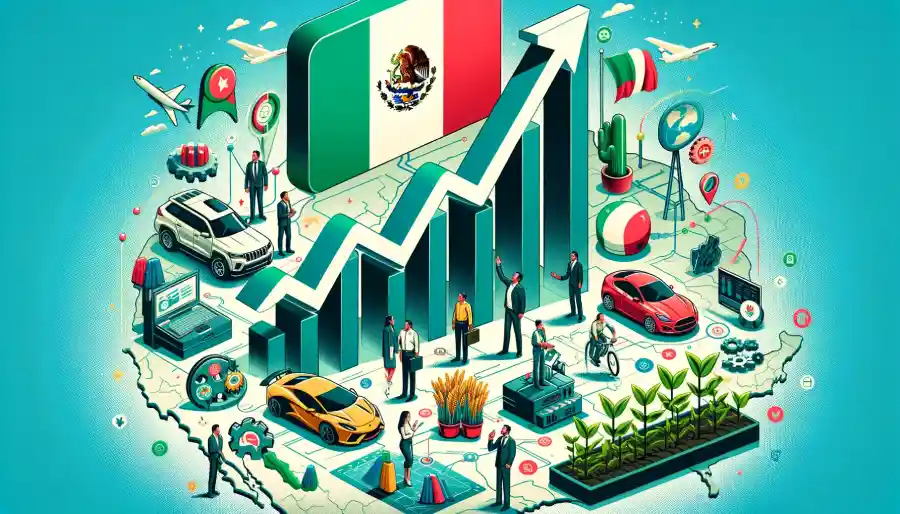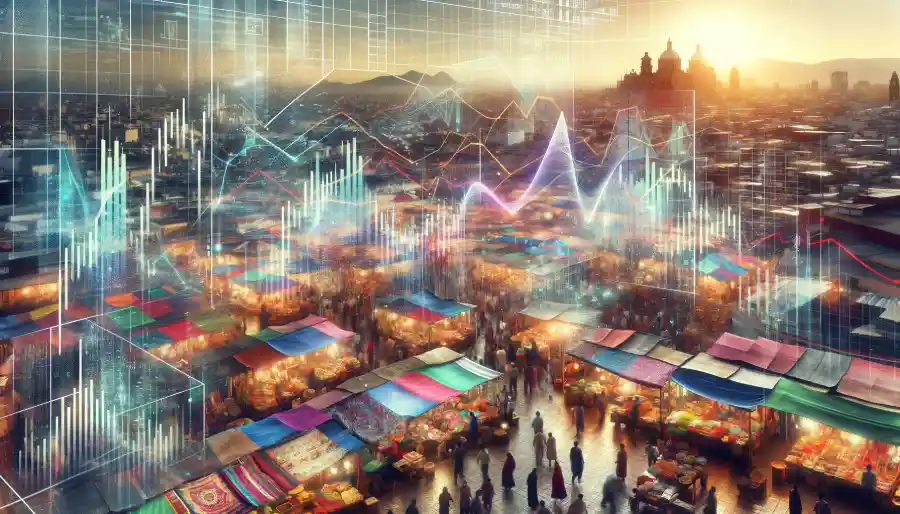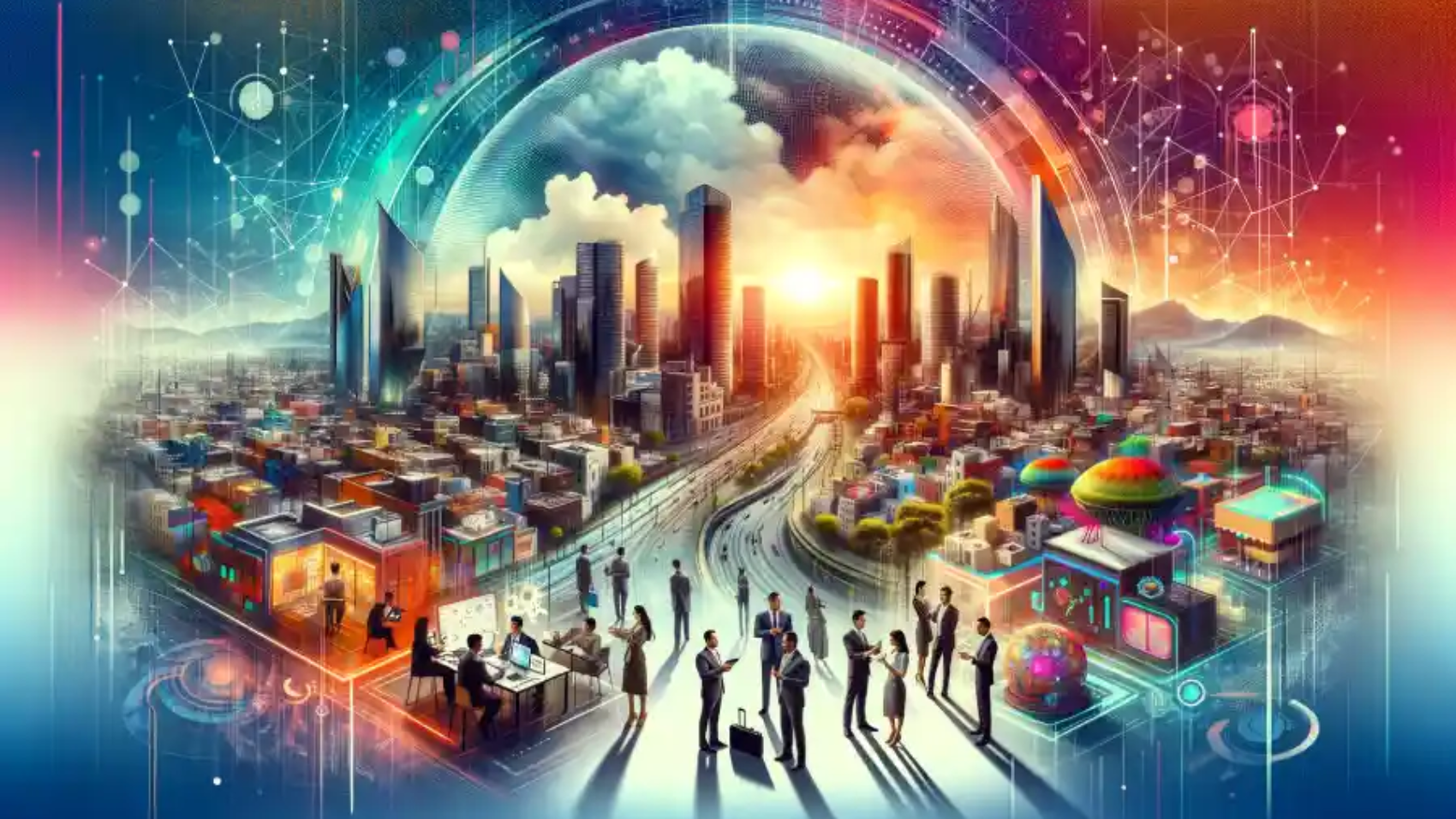Mexico, with its unique position bridging the North and South American continents, stands as a pivotal player in the global economic landscape. As the 15th largest economy globally, Mexico’s role in the global economic landscape is increasingly scrutinized under the lens of Is Mexico an Emerging Market?
This article explores the multifaceted nature of Mexico as an emerging market, delving into its economic, political, and social dimensions.
Key Takeaways
- Mexico’s Economic Landscape: As the 14th-largest economy globally, Mexico showcases a diversified market with steady economic growth, despite challenges like COVID-19 and global economic fluctuations.
- Trade and Investment: The country’s deep trade and investment ties, particularly with the United States, underscore its significant role in international trade.
- Challenges and Opportunities: While grappling with issues like poverty, crime, and environmental concerns, Mexico also presents opportunities in areas like renewable energy and sustainable development.
Mexico’s Economic Growth and Stability – Is Mexico an Emerging Market?

Mexico’s economy, valued at approximately USD 1.4 trillion, is the second-largest in Latin America. It has experienced a consistent, albeit slow, growth since the 1990s. Factors such as external demand and foreign investment are expected to drive future growth. However, challenges like labor informality, poverty, and declining oil production have affected its growth rate.
Trade Relations and Agreements
The United States-Mexico-Canada Agreement (USMCA), which replaced NAFTA, has further strengthened Mexico’s trade relations, particularly with the U.S. Mexico’s trade with the U.S. totaled USD 863.4 billion in 2022, highlighting its importance as a trading partner. Additionally, Mexico’s participation in 13 free trade agreements covering 50 countries, including the CPTPP, positions it as an open and competitive market.
Political Landscape and Development Cooperation
Mexico’s political environment, under the leadership of President Andrés Manuel López Obrador, is focused on addressing corruption and human rights issues. The country’s role in international organizations like the United Nations and the OAS is noteworthy. In terms of development cooperation, Mexico collaborates closely with countries like Germany, focusing on sustainable energy and environmental conservation.
Social Disparities and Challenges
Despite being an upper-middle-income country, Mexico faces vast social disparities, with over 40% of its population living in poverty. Issues like governance transparency, a shortage of skilled workers, and corruption are significant impediments to its development.
Environmental Concerns and Sustainable Development
Mexico’s rich biodiversity is under threat due to urbanization, agriculture, and logging. The country’s focus on sustainable use of natural resources and renewable energy, particularly solar and wind power, is crucial for its environmental conservation efforts.
Understanding Mexico’s Market Dynamics

Economic Indicators: Is Mexico an Emerging Market?
Mexico’s economy, characterized by a diverse market and stable growth, is expected to maintain steady growth levels in the coming years. Despite global challenges, its economic resilience is evident in its ability to adapt and thrive.
The Role of Foreign Investment
Foreign investment plays a significant role in Mexico’s economy. The country’s strategic location and trade agreements make it an attractive destination for investors, particularly from the United States.
Mexico’s Dependency on the United States
The U.S. is a crucial trade partner for Mexico, with about 80% of Mexican exports destined for the U.S. This dependency underscores the interconnectedness of the two economies and the importance of bilateral trade relations.
Challenges and Opportunities in Mexico’s Emerging Market

Addressing Social and Economic Disparities
While Mexico has made significant strides in its economic development, social and economic disparities remain a challenge. Efforts to reduce poverty and improve governance are essential for sustainable growth.
Leveraging Renewable Energy Potential
Mexico’s geographic and climatic conditions are conducive to renewable energy use. Transitioning to sustainable energy sources is not only environmentally beneficial but also economically strategic.
Enhancing Trade and Investment
Continued focus on strengthening trade relations and attracting foreign investment is vital for Mexico’s growth as an emerging market. The country’s participation in international trade agreements and its efforts to modernize its trade policies are key factors in this regard.
Final Words – Is Mexico an Emerging Market?
In conclusion, the exploration of Mexico’s economic, political, and social dimensions provides a comprehensive answer to the question, Is Mexico an Emerging Market? Its strategic position, coupled with its evolving trade relationships and focus on sustainable development, positions Mexico as a key player in the global economy. As it navigates its path towards further development, the opportunities and challenges it faces will shape its trajectory in the years to come.


[…] Read: Is Mexico an Emerging Market? […]